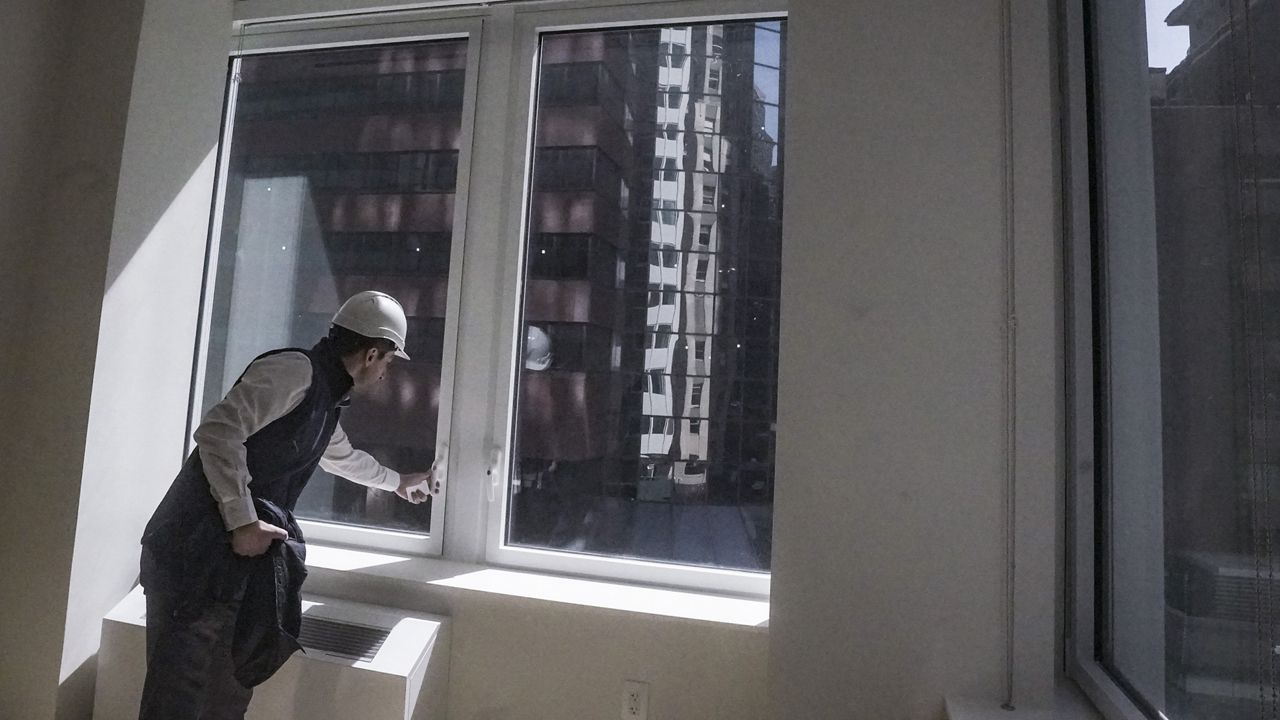Former office buildings and other commercial properties can be more easily converted to residential use under new initiatives the White House announced Friday.
The U.S. Housing and Urban Development Department and Department of Transportation are offering $45 billion in financing and will streamline the sale of unused, transit-owned properties to help increase the nation’s housing supply.
“We face a longstanding shortfall in affordable housing — one that has been growing for at least the last decade,” National Economic Council Director Lael Brainard said Thursday during a press briefing about the new White House commercial building conversion initiatives.
Following the pandemic, the Council of Economic Advisers said office vacancies hit a 30-year high, hollowing out urban downtowns and rural business districts, while affordable housing has simultaneously languished.
With costs for both owning and renting a place to live becoming harder to afford for more Americans, the White House announced revisions to two funding programs available through the Department of Transportation that will make over $35 billion available for transit-oriented development projects at below-market interest rates. The Transportation Infrastructure Finance and Innovation Act and Railroad Rehabilitation and Improvement Financing programs can be used to finance commercial conversion projects for housing located near public transit.
“Many American cities and towns face a steep housing shortage, and families are struggling to afford housing and transportation,” U.S. Department of Transportation Secretary Pete Buttigieg said. “Often the consequences are people live impossibly far away from work so that they can be somewhere they can afford or live somewhere unaffordable so that they can be close enough to work.”
Many commercial buildings that are now sitting vacant are already oriented around public transit, Buttigieg said, “making them a good fit for our department to help support.”
As part of the White House Housing Supply Action Plan, the DOT will also streamline transit agencies’ ability to repurpose their properties for affordable housing projects near public transportation. Under the new rules, transit agencies will be able to transfer land to local governments, nonprofits or for-profit developers that build affordable housing on the properties.
The General Services Administration also announced a plan to work with the Office of Management and Budget to identify surplus federal properties that could be sold for residential development.
“HUD’s mission is to create strong, sustainable and inclusive communities and also quality affordable housing,” Department of Housing and Urban Development Deputy Secretary Adrianne Todman said.
The actions HUD, DOT and other federal agencies are taking to convert commercial properties to housing “supports our mission,” she added. “For a shortage of millions of homes nationwide, we need to utilize every resource at our disposal to increase housing supply, which in turn, given the high demand, will help with rent levels and purchase costs.”
As part of the White House initiative, Housing and Urban Development is revising its Community Development Block Grant fund, allocating $10 billion to acquire, rehabilitate and convert commercial properties for housing and mixed-use developments. HUD says states and localities will be able to access five times their annual block grant allocations in low-cost loan guarantees for commercial conversion projects. In addition, HUD’s $85 million Pathways to Removing Obstacles to Housing program will accept applications for so-called adaptive reuse.
The White House says six federal agencies now have 20 programs that can be used to support commercial property conversions to housing with low-interest loans, grants, loan guarantees and tax incentives. The Department of Energy, for example, is offering various tax credits and deductions for energy efficient systems as part of the Inflation Reduction Act.




